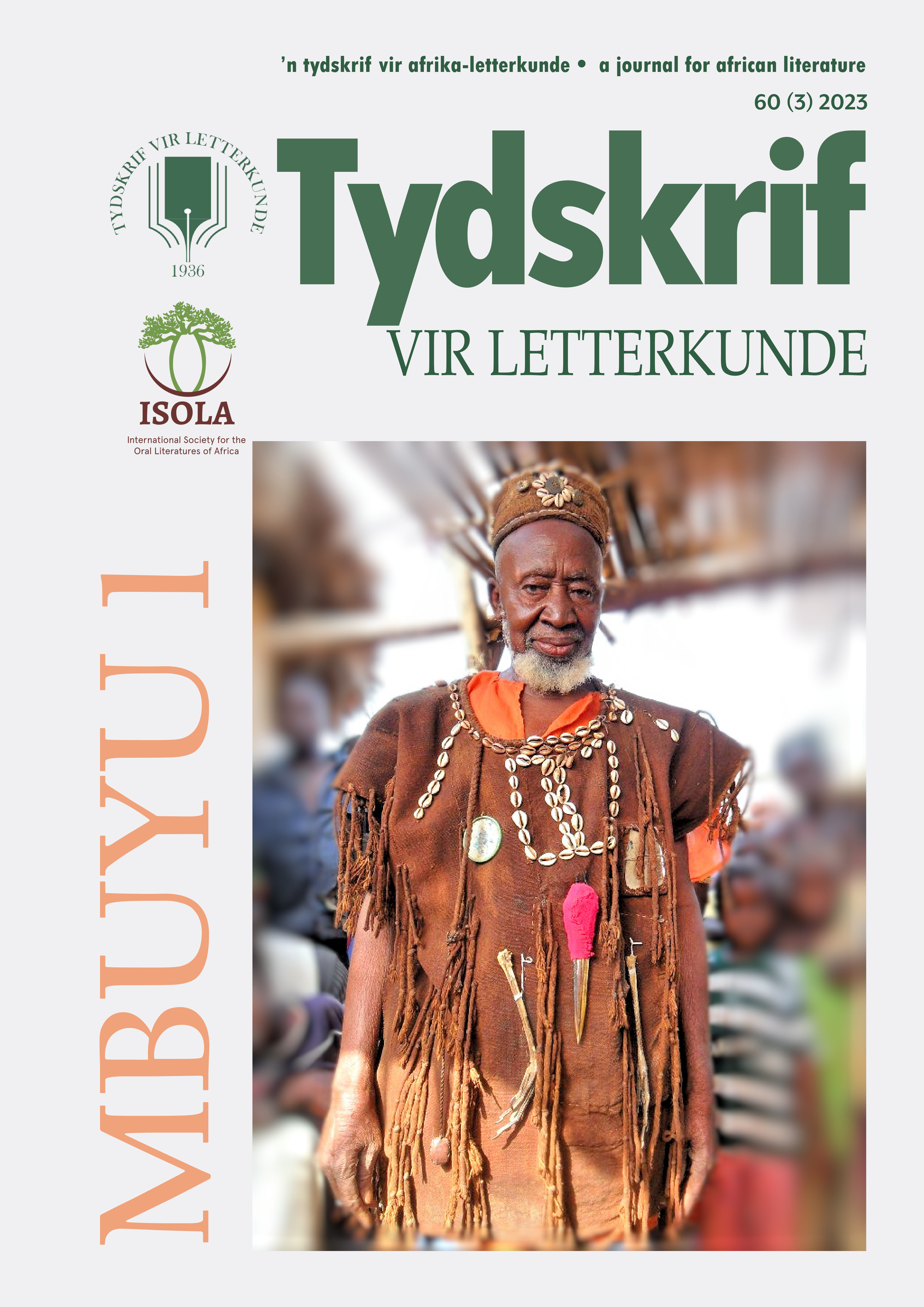Gender and power as negotiated in Bukusu circumcision ceremonies
DOI:
https://doi.org/10.17159/tl.v60i3.14504Keywords:
Kenya, discourse, negotiation, power, circumcision, Bukusu, asymmetriesAbstract
Recent studies on language and gender that focus on songs and beer drinking sessions within the context of the Bukusu circumcision ceremony have shown that language is gendered and that it espouses male gender. Against this backdrop, in this study we aim to denaturalise this view by focussing on conversations within the circumcision ceremony. By using theoretical and methodological principles from critical discourse and conversation analysis in particular, we argue that, by using linguistic strategies, traditional gender roles are not only discursively highlighted but they are also negotiated and even resisted. This study falls within recent discussions in critical discourse analysis that have shown that language masks asymmetrical power relations on the one hand, and within postcolonial studies that have shown that gender discourses can reflect collisions between differing points of views on the other hand. The data used in this study is four audio recordings of conversations that took place alongside the main ceremony. This data has been analysed at the level of content and prosodic organisation to identify discursive practices that reveal the negotiation and contestation of gender roles. The study contributes to recent discussions in critical discourse analysis by exposing gender asymmetries and contestations that lie behind ‘taken-for-granted’ realities, with specific examples from the postcolonial context of the Bukusu circumcision ceremony.
Downloads
References
Antaki, Charles & S. Widdicombe, eds. Identities in Talk. Sage, 2008. DOI: https://doi.org/10.4135/9781446216958
Coates, Jennifer. “Competing discourses of femininity.” Communicating Gender in Context, edited by Helga Kotthoff & Ruth Wodak. John Benjamins, 1997. pp. 285–314.
Crawford, Mary. Talking Difference: On Gender and Language. Sage, 1995.
Fairclough, Norman. Language and Power. Longman, 2001.
Goffman, Erving. Gender Advertisements. Harvard, 1979.
Kotthoff, Helga. “The Interaction Achievement of Expert Status.” Communicating Gender in Context, edited by Helga Kotthoff & Ruth Wodak. John Benjamin, 1997, pp. 139–79. DOI: https://doi.org/10.1075/pbns.42.09kot
Mills, Sara. Gender and Politeness. Cambridge U P, 2003. DOI: https://doi.org/10.1017/CBO9780511615238
Pavlenko, Aneta & Adrian Blackledge. Negotiation of Identities in Multilingual Contexts. Multilingual Matters, 2004. DOI: https://doi.org/10.21832/9781853596483
Phillips, Nelson & Cynthia Hardy. Discourse Analysis: Investigating Processes of Social Construction. Sage, 2002. DOI: https://doi.org/10.4135/9781412983921
Sacks, Harvey. “Everyone has to lie.” Sociocultural Dimensions of Language Use, edited by. Mary Sanches & Ben B. Blount. Academic, 1975, pp. 57–80.
Talbot, Mary. Language and Gender: An introduction. Wiley-Blackwell, 1998.
Thorne, Barrie. Gender and Interaction: Perspectives on Femininity and Masculinity in Ethnography and Discourse. Sage, 2001. DOI: https://doi.org/10.1075/pbns.93.03tho
Downloads
Published
Issue
Section
License
Copyright (c) 2023 Tydskrif vir Letterkunde

This work is licensed under a Creative Commons Attribution-ShareAlike 4.0 International License.


 https://orcid.org/0000-0001-6465-6584
https://orcid.org/0000-0001-6465-6584


.png)